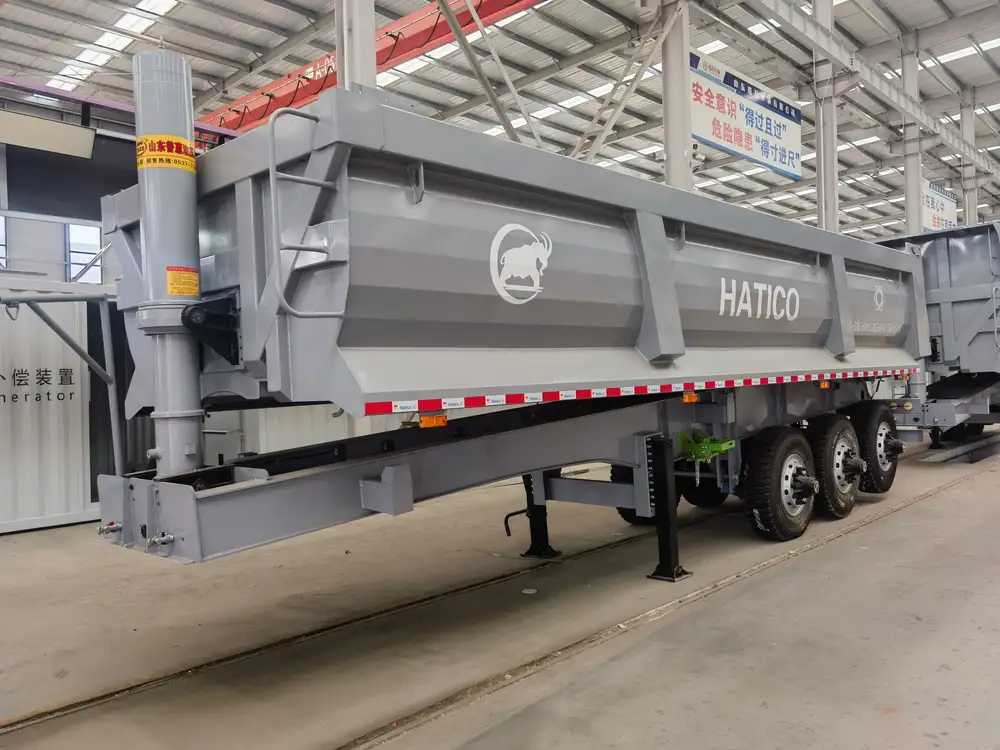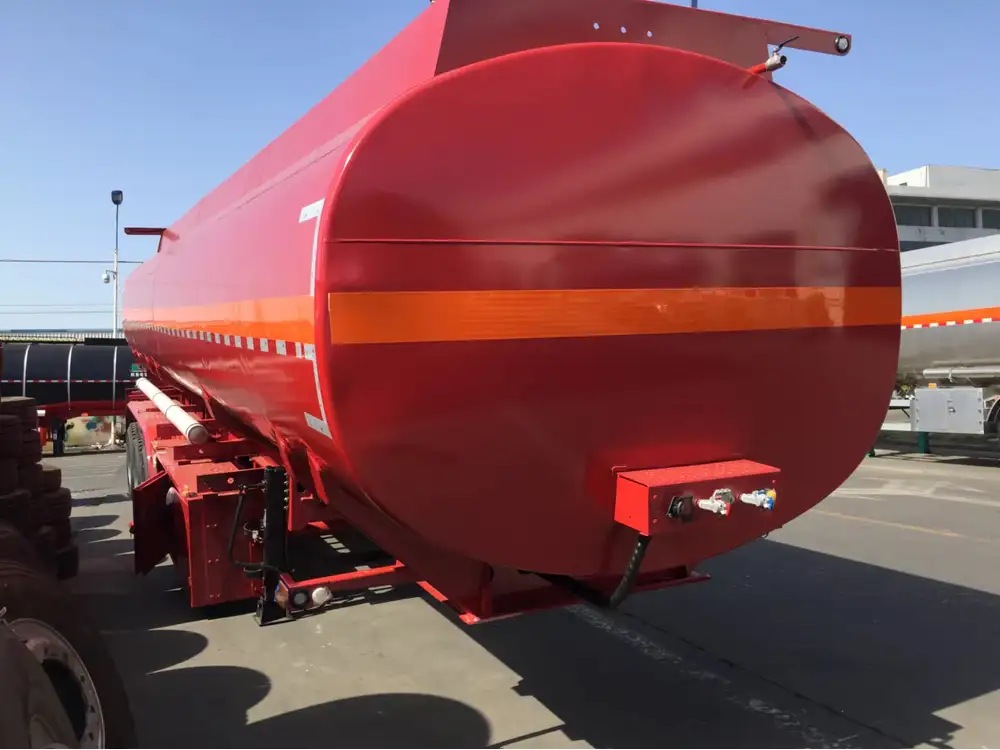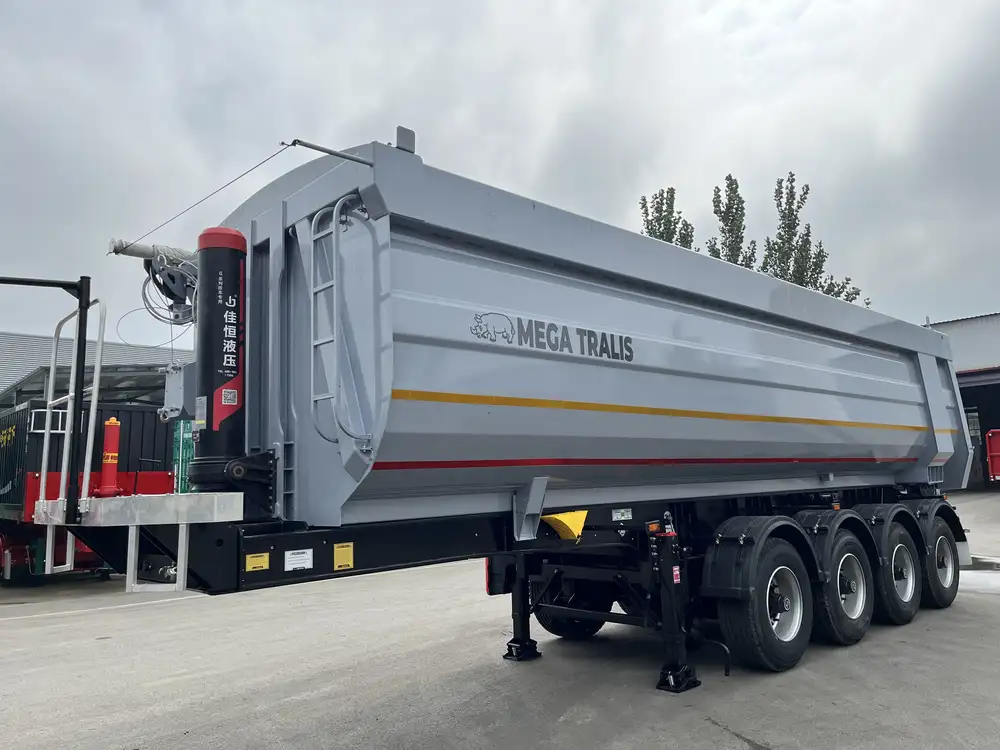In the dynamic world of transportation and logistics, flatbed trailers play an indispensable role. Their versatility is unmatched, as they cater to various cargo types, from construction materials to oversized machinery. However, as businesses assess their assets for financial planning, risk management, and tax purposes, a critical question arises: Is a flatbed trailer considered tangible property?
Defining Tangible Property
Tangible property refers to physical assets that have intrinsic value and can be touched or physically measured. These include machinery, vehicles, buildings, and equipment. Recognizing whether a flatbed trailer qualifies as tangible property is essential for businesses as it influences taxation, insurance policies, and depreciation calculations.
Key Qualities of Tangible Property
To clarify the classification of flatbed trailers, let’s explore the primary characteristics of tangible property:
| Characteristic | Description |
|---|---|
| Physical Existence | The item must occupy space and have a physical form. |
| Value | The item should hold value in the marketplace. |
| Durability | Tangible assets typically have a useful lifespan extending beyond a single year. |
| Ownership Rights | The ability to buy, sell, or trade exists for tangible property. |
Applying these definitions, flatbed trailers indeed meet all criteria for tangible property.

Characteristics of Flatbed Trailers
Flatbed trailers, with their open design and robust construction, are engineered for transporting heavy and cumbersome goods. Their functionality is derived from several inherent features:
- Open Platform: Unlike enclosed trailers, flatbeds allow for easy loading and unloading from all sides.
- Variety of Materials: They can be composed of steel, aluminum, or a combination, enhancing their durability and lifespan.
- Weight Capacity: Flatbed trailers can carry heavy loads, making them a reliable option in chains of supply.
Types of Flatbed Trailers
Understanding the kinds of flatbed trailers can also shed light on their tangible property status:
| Type | Description |
|---|---|
| Standard Flatbed | The most common trailer used for general cargo transport. |
| Step Deck Flatbed | Features a lower deck to accommodate taller loads. |
| Double Drop Flatbed | Designed for oversized cargo, tapering down at both ends. |
| Extendable Flatbed | Adjustable length, useful for transporting longer items. |
The diversity in trailer types further solidifies their standing as tangible property under varying operational contexts.
Legal and Financial Implications

Taxation
Flatbed trailers are typically treated as tangible personal property for tax purposes. Businesses often deduct depreciation on these trailers under the Modified Accelerated Cost Recovery System (MACRS). Understanding tax law can help businesses maximize their savings.
Key Tax Considerations:
Depreciation Methods:
- Straight-Line Depreciation: Allocates the same amount of expense for the asset for each taxable year.
- Accelerated Depreciation: Allows for a greater portion of the expense to be claimed earlier.
Sales Tax Implications:
- Generally, the purchase of flatbed trailers is subject to state sales tax. Knowing this can aid in making financial projections and budgeting effectively.
Property Tax:
- Many jurisdictions assess taxes on tangible property, thus impacting the overall cost of ownership.
Insurance
Recognizing flatbed trailers as tangible property is crucial when obtaining insurance coverage. A proper insurance policy will cover risks associated with loss or damage to these trailers.
Types of Insurance:
| Insurance Type | Description |
|---|---|
| Liability Insurance | Covers damages or injuries caused by the trailer operation. |
| Physical Damage Coverage | Protects against losses from theft, accidents, or disasters. |
| Cargo Insurance | Insures goods being transported on flatbeds. |

The Role of Flatbed Trailers in Business Operations
Flatbed trailers are more than just vehicles; they are fundamental assets in logistics and supply chain operations. Their classification as tangible property underscores their value within operational frameworks.
Operational Benefits
- Flexibility: The ability to handle diverse cargo types allows businesses to cater to various customer needs.
- Cost-Efficiency: Investing in flatbed trailers reduces the necessity for multiple vehicle types, streamlining operations.
- Ease of Use: The open design of flatbed trailers simplifies loading, unloading, and securing cargo.
Contemporary Trends in Flatbed Trailers
To remain competitive, businesses must stay attuned to trends impacting the flatbed trailer market:

Technological Advances
- Telematics: Integrating GPS tracking systems enhances logistics efficiency and fleet management.
- Automated Loading Systems: Innovations in loading technologies improve workplace safety and reduce labor costs.
Sustainable Practices
- Eco-Friendly Designs: More manufacturers are making trailers from lighter, recyclable materials to decrease fuel consumption.
- Hybrid Models: The emergence of hybrid trailers combines electric power with traditional diesel for reduced emissions.
Conclusion
In conclusion, flatbed trailers are undeniably considered tangible property due to their defining attributes, legal implications, and significant role in business logistics. They provide operational flexibility, cost efficiency, and compatibility with current technological and sustainability trends.
To maximize the benefits associated with flatbed trailers, businesses should carefully analyze their finances, ensure appropriate insurance coverage, and leverage advancements in technology. As a tangible property, their worth extends beyond mere physical presence; they embody a vital component of business infrastructure that drives operational success and profitability.

Additional Considerations
- Regular Maintenance: Ensuring the longevity and safety of flatbed trailers through routine inspections and repairs can further affirm their status as valuable tangible assets.
- Investment Decisions: As companies assess their asset portfolios, understanding the classification of flatbed trailers can lead to better investment decisions and capital allocation.
In addressing the query of whether a flatbed trailer is considered tangible property, the answer is a resounding yes. Their role as critical business assets reinforces their importance and value in the modern marketplace.



